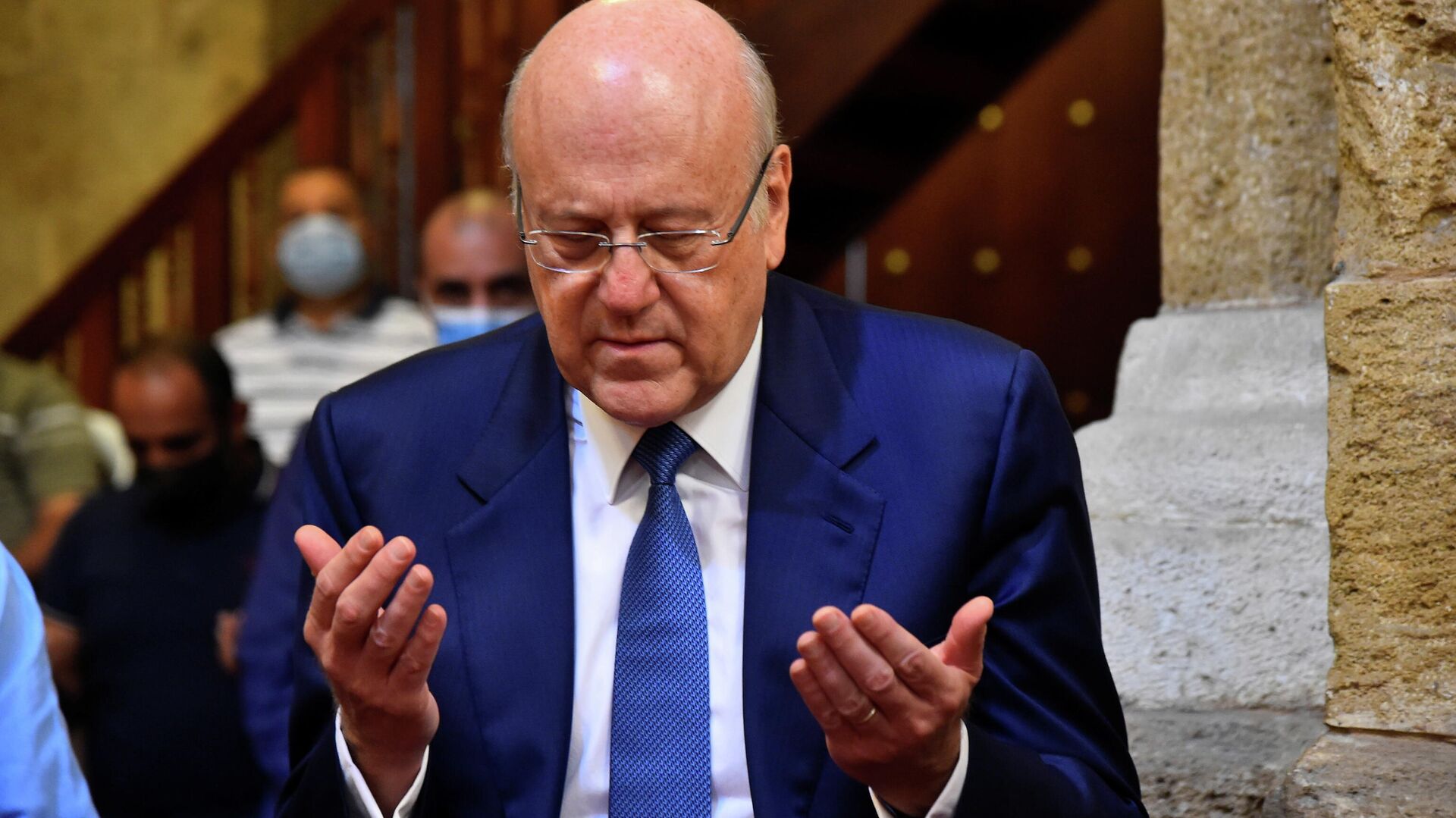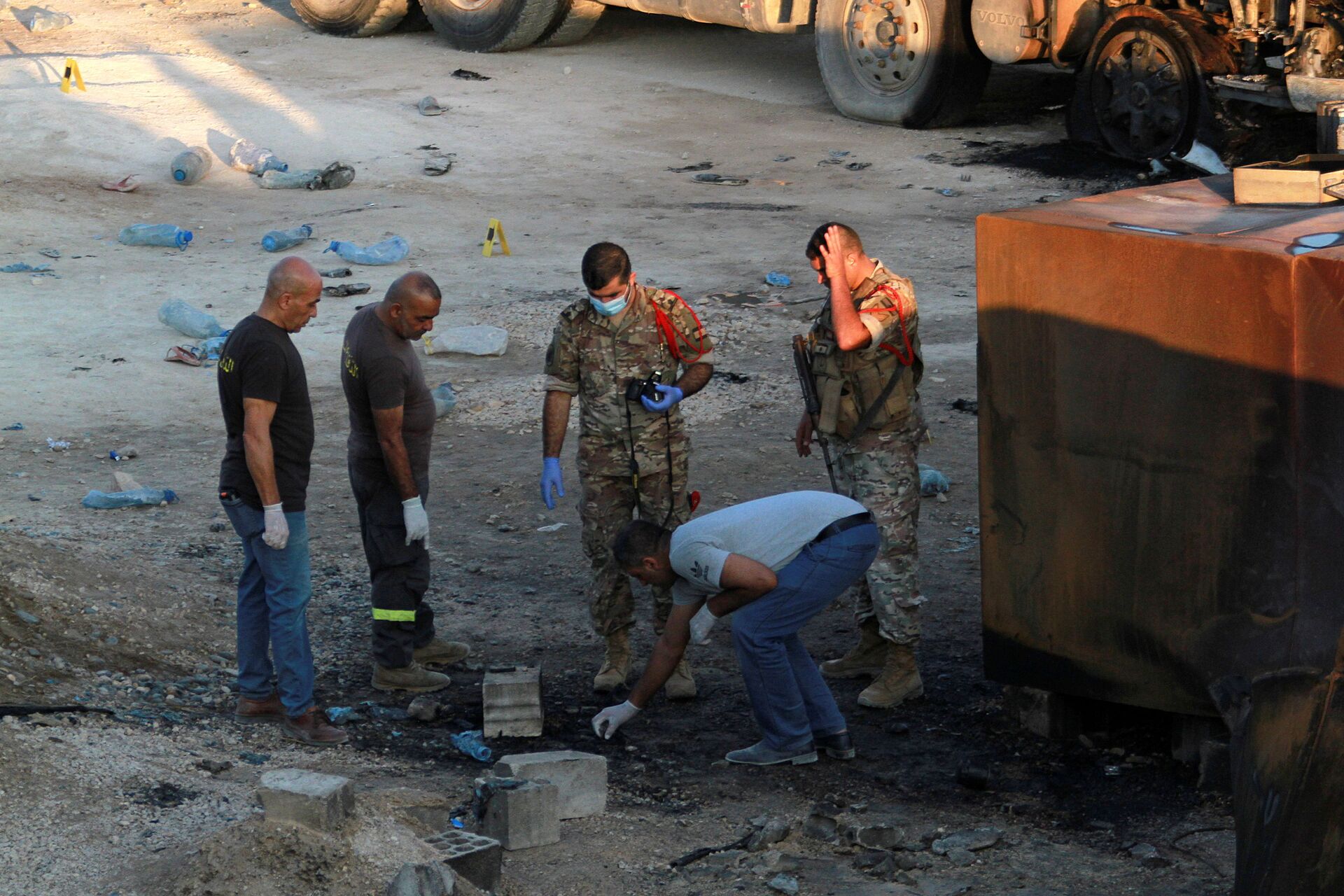https://sputnikglobe.com/20210911/new-lebanese-pm-says-he-would-accept-help-from-any-country-with-exception-of-israel-1088968997.html
New Lebanese PM Says He Would Accept Help From Any Country ‘With Exception of Israel’
New Lebanese PM Says He Would Accept Help From Any Country ‘With Exception of Israel’
Sputnik International
New Lebanese Prime Minister Claimed He Would Accept Help From Any Country ‘With Exception of Israel’
2021-09-11T01:03+0000
2021-09-11T01:03+0000
2023-01-15T17:24+0000
lebanon
humanitarian aid
economic crisis
israel
https://cdn1.img.sputnikglobe.com/img/07e5/09/0b/1088968971_0:159:3076:1889_1920x0_80_0_0_6439f42cf4c3a316275480c26f2de130.jpg
Prime Minister Najib Mikati pledged on Friday that he would tackle the disastrous economic situation in Lebanon, saying he is ready to cooperate with any county except Israel.When asked by a reporter whether he would partner with Syria to overcome the crisis, Mikati noted that Beirut “will deal with anyone for the sake of Lebanon’s interest, with the exception of Israel, of course.”According to Israeli media, Tel Aviv had earlier allegedly proposed humanitarian aid to Lebanon.The countries haven’t established diplomatic relations amid Israel’s confrontation with Lebanese Shia Islamist political group Hezbollah, based in the country’s south.The August intensification of the border conflict between Israel and Lebanon was said to be the most serious in 15 years since the Lebanese-Israeli war in 2006. On 6 August, Hezbollah fired 19 rockets towards Israel, and the IDF fired back.The political turbulence in Lebanon started in August last year after the resignation of the country's government led by Hassan Diab amid the massive explosion in Beirut that caused catastrophic losses.The compromise Prime Minister Mustafa Adeeb was unable to form a government. As a result, in October parliament asked Saad Hariri to return, who had left his position as prime minister a year earlier amid local protests. After 10 months, however, Hariri was unable to agree with the president on the distribution of ministerial posts between Muslims and Christians and resigned in July.
lebanon
israel
Sputnik International
feedback@sputniknews.com
+74956456601
MIA „Rossiya Segodnya“
2021
News
en_EN
Sputnik International
feedback@sputniknews.com
+74956456601
MIA „Rossiya Segodnya“
Sputnik International
feedback@sputniknews.com
+74956456601
MIA „Rossiya Segodnya“
najib mikati, israeli humanitarian aid, lebanon's crisis
najib mikati, israeli humanitarian aid, lebanon's crisis
New Lebanese PM Says He Would Accept Help From Any Country ‘With Exception of Israel’
01:03 GMT 11.09.2021 (Updated: 17:24 GMT 15.01.2023) Lebanon, which since 2019 has been experiencing severe economic and political problems, announced on Friday the formation of a new government led by 66-year-old tech mogul Najib Mikati.
Prime Minister Najib Mikati pledged on Friday that he would tackle the disastrous economic situation in Lebanon, saying he is ready to cooperate with any county except Israel.
“The situation is difficult but not impossible to deal with if we cooperate,” he said during a presser at the presidential palace as media reported.
When asked by a reporter whether he would partner with Syria to overcome the crisis, Mikati noted that Beirut “will deal with anyone for the sake of Lebanon’s interest, with the exception of Israel, of course.”
According to Israeli media, Tel Aviv had earlier allegedly proposed humanitarian aid to Lebanon.
The countries
haven’t established diplomatic relations amid Israel’s confrontation with Lebanese Shia Islamist political group Hezbollah, based in the country’s south.
The August intensification of the border conflict between Israel and Lebanon was said to be the most serious in 15 years since the Lebanese-Israeli war in 2006. On 6 August,
Hezbollah fired 19 rockets towards Israel, and the IDF fired back.
The political turbulence in Lebanon started in August last year after the resignation of the country's government led by Hassan Diab amid the massive explosion in Beirut that caused catastrophic losses.
The compromise Prime Minister Mustafa Adeeb was unable to form a government. As a result, in October parliament asked Saad Hariri to return, who had left his position as prime minister a year earlier amid local protests. After 10 months, however, Hariri was unable to agree with the president on the distribution of ministerial posts between Muslims and Christians and resigned in July.


